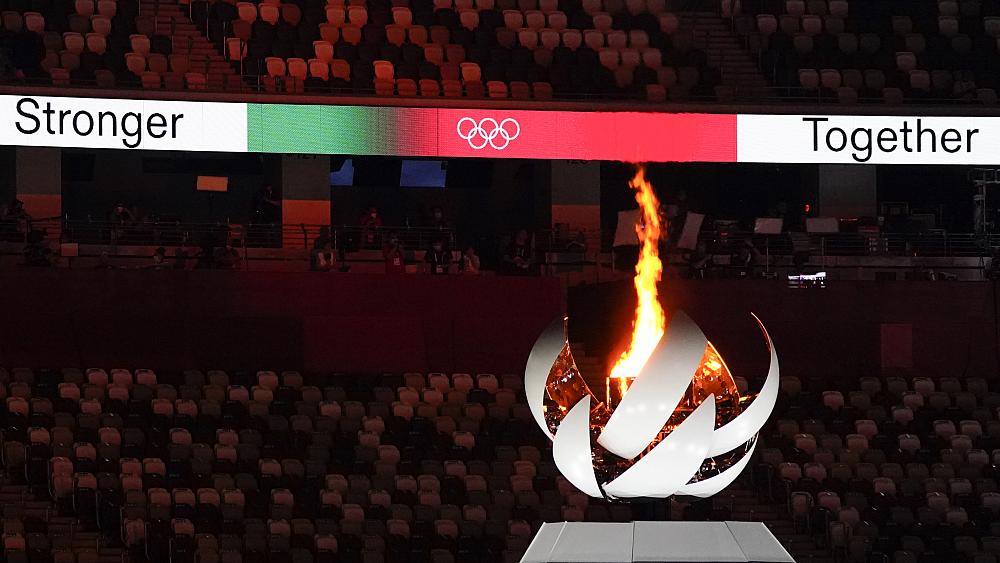
After 17 days of sporting action held a year late and with the spectre of COVID-19 hanging over them, the Tokyo Summer Olympics came to an end on Sunday.
They will mostly be remembered for the empty stadiums but there were plenty of other noteworthy events including athletes taking a stand on mental health and LGBTQ+ issues, Belarusian sprinter Krystsina Tsimanouskaya’s dramatic exit to Poland and Italy rising as an unexpected sprinting powerhouse.
Tokyo 2020 president Seiko Hashimoto has hailed what she called the “can-do” attitude of this year’s Olympics, held despite all the problems associated with the coronavirus pandemic.
Tokyo passed the summer Olympics baton to Paris with a drum-inflected closing ceremony with a “Worlds We Share” theme designed to make athletes and viewers “think about what the future holds” and “expresses the idea that each of us inhabits their own world,” organisers said.
“We are in a new normal, and this edition of the Games were a different affair,” the programme of the ceremony said. “Even if we cannot be together, we can share the same moment. And that is something that we will never forget.”
The French capital also took centre stage.
Paris will host the next edition of the summer games and as is traditional, its mayor Anne Hidalgo will receive the Olympic flag from the current host city’s authorities.
While Hidalgo will be in Tokyo, festivities will also take place in Paris with a free concert by Woodkid and a flight by the Patrouille de France aircraft.
A flag the size of a football pitch stamped “Paris 2024” was expected to be hoisted and flown on the Eiffel Tower but meteorological conditions do not allow it, Paris 2024 organisers said on Sunday.
Japan kicked off the world’s biggest sporting celebration with public opinion fairly hostile against the games following several scandals and over concerns they would lead to a surge in COVID-19 infections.
Seventeen days later, Japan boasts its highest Olympic tally with 58 medals including 28 gold — the third highest.
The previous best in gold was 16, both in 1964 and at the 2004 Athens Games. The country won only 12 gold medals five years ago in Rio de Janeiro.
Home countries always get a medal bump, usually by investing more time and money than they would ordinarily. With no fans, some of that home-field advantage was lost. Still, Japan made up for the lack of fans by winning medals in the five sports added to this year’s Olympic program: baseball-softball, sports climbing, karate, surfing and skateboarding.
Related posts:
Views: 0
 RSS Feed
RSS Feed

















 August 8th, 2021
August 8th, 2021  Awake Goy
Awake Goy  Posted in
Posted in  Tags:
Tags: 
















